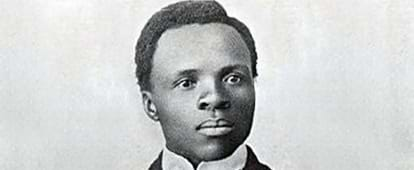By creating an account, I agree to the
Terms of service and Privacy policy
Choose your country and language:
Africa
Americas
Asia Pacific
Europe
SSol Plaatje is a leading figure in South Africa's liberation history. An extraordinary thinker, he spent much of his life mobilising for the liberation of African people. Two national monuments in Kimberley are testament to his legacy, and a museum in Mahikeng is named after him. Solomon Tshekisho “Sol” Plaatje (1876-1932) had little formal education but his incredible acumen and drive ensured that he became a literary and political icon in South Africa.

Kimberley
HHis status as a leader, activist, writer, journalist and visionary is documented in the Sol Plaatje Museum and Library at 32 Angel Street, Kimberley, the "Diamond City" where he lived for many years, and where he is buried. The Kimberley municipality in the Northern Cape province is also named after him.
Born on a farm in Boshof in the Free State, he was part of the group of mission-educated black South Africans who founded the South African Native National Congress (SANNC) in 1912. This later became the African National Congress in 1926.
PPlaatje, who was offered the leadership of the SANNC in 1917 and turned it down, spent much of his time travelling to London and the United States in his quest to raise awareness of the racial injustices in the land of his birth.
He was, among other things, the first black person known to have kept a diary during war times, documenting the Siege of Mafikeng during the Boer War. He also translated Shakespeare's works and other novels into his home language, Tswana.
The works of Sol Plaatje include several books. Among Sol Plaatje's literature is the seminal Mhudi, the first book published by a black person in South Africa. He was also an editor of vernacular newspapers and was fluent in English, Afrikaans, Dutch, German, French, Sotho, Zulu, and Xhosa.
His grave in Kimberley, and house in Angel Street, have been declared national monuments as tributes to a person whose resilience, self-esteem and intellect pushed him to the zenith of life in South Africa despite having to daily confront the potentially crushing and demeaning effects of racial injustice.

|Terms and conditions|Disclaimer|Privacy policy|Social Media Terms and Conditions|Competition Terms and Conditions
